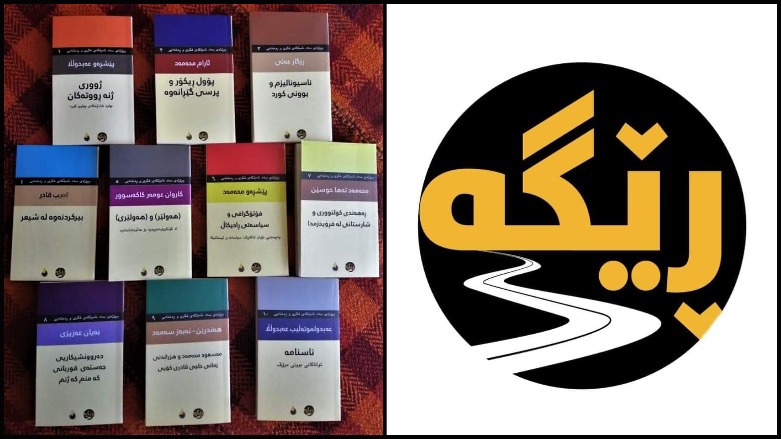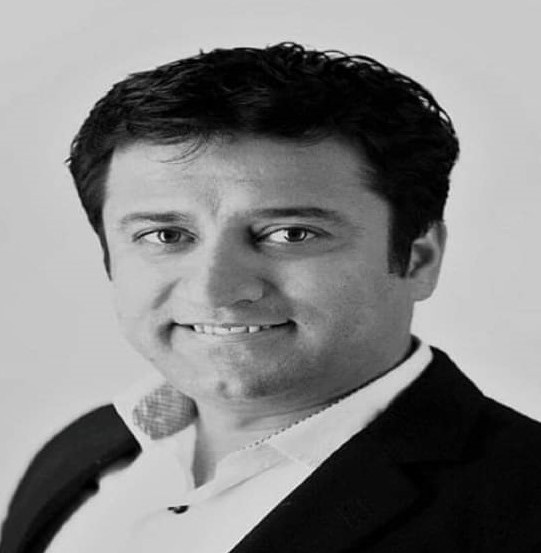Kurdistan intellectuals launch literary project for both academia and the everyday reader

ERBIL (Kurdistan 24) – A group of young Kurdish thinkers and writers have launched a project to fill the critical, literary, and intellectual gaps they see in the Kurdistan Region. They call it Rega, or “The Way,” in English.
Rega is preparing to have 100 pocket-sized books published, with their target audience the local literary elite as well as readers who are interested in developing their own level of literary criticism as well as both critical and creative thinking.
Four Kurdish intellectuals from Erbil – Aram Mohammed, Peshraw Abdulla, Taib Qader, and Rizgar Ali – voluntarily manage Rega and the Rosa Foundation, also based in Erbil, to cover the cost of publishing and distributing the books.
The project was initially announced in early February. In April, the first phase saw 10 books released in various fields including language, literature, criticism, creative writing, critical thinking, anthropology, culture, photography, psychoanalysis, and feminism.
The second phase, which will result in the printing and circulation of the next batch of 10 books, is currently underway.
“This project aims to pay attention to the Kurdish way of critical thinking, creative thinking, and writing,” says Aram Mohammed, one of the group’s co-founders. “Rega is an attempt to find local ways of asking questions and an open and free way of dealing with concepts within the Kurdish mindset.”
Their long-term plan is, if possible, to translate the books into English so that the western world is familiar with the intellectual approach of many from the Kurdistan Region, Mohammed added.
To have Rega’s books translated into English is another objective of the group, Mohammed says, but it will take financial support, effective translators, and a great deal of effort. “For now, the goal is to focus on spreading such thoughts in Kurdish.”
“The books can definitely be good sources for university students as well as professors,” he says, adding that each book has its own self-contained method and academic framework, making it possible for those outside academia to also benefit from them.
Due to a lack of primary sources in these fields in the Kurdish language, serious readers in Kurdistan see Rega as one of the most important intellectual or cultural projects in the region.
Hassan Mohammed, 33, an avid reader, says he was pleased when he saw the first ten books in such important fields, remarking, “I have bought all of them and am halfway through reading them all.”
Rega does not translate books from other languages into Kurdish, instead only focusing on local writers. Mohammed says the project gives a venue for thinkers and writers to have their thoughts published. “There are other foundations that pay attention to translation. They translate foreign books, but not us.”
“Paul Recoeur and the issue of narration” is among the first ten books, written by the co-founder Aram Mohammed. Among other concepts, the book defines the concept of “readers” who have a significant value in the process of writing. Mohammed, based on Paul Recoeur’s thoughts, explains in simple, direct language, the concept of writing, reading, and narration.
When asked why the group chose to set the goal at 100 books, Mohammed told Kurdistan 24 that the reason is that it’s a challenge. “I know it is hard to publish 100 books, but we needed to have a framework. After that, we will have other activities such as writing on different phenomena in the Kurdish society.”
Another book from the first round, the Room of the Naked Women, written by Peshraw Abdulla, also a co-founder of Rega, addresses the issues of women and the mindset of men in relation to them throughout Kurdish society. “It is an analytic piece of Kurdish men’s mentality towards women,” Abdulla says.
Related Article: Female Kurdish writers break through local, international barriers
In regard to Rega, Abdulla notes that some of the books are analyses of various issues in multiple Kurdish societies, while others tackle Western concepts from the perspective of Kurdish thinkers.
Rega’s second batch of books might hit markets in early November, and many readers are clearly eager to see more.
“The first ten books were beneficial and I learned a lot from them,” says an enthusiastic 28-year-old reader named Hemin Ali.
Rega, he says, is a serious and important project for Kurdish readers and academia, and that he hoped he would see the 100th book in his hands before long.
Editing by John J. Catherine
